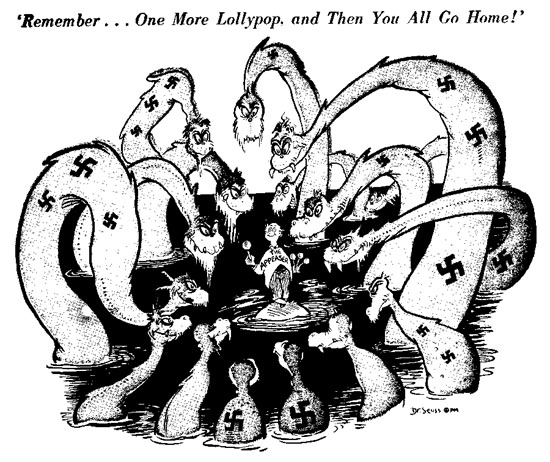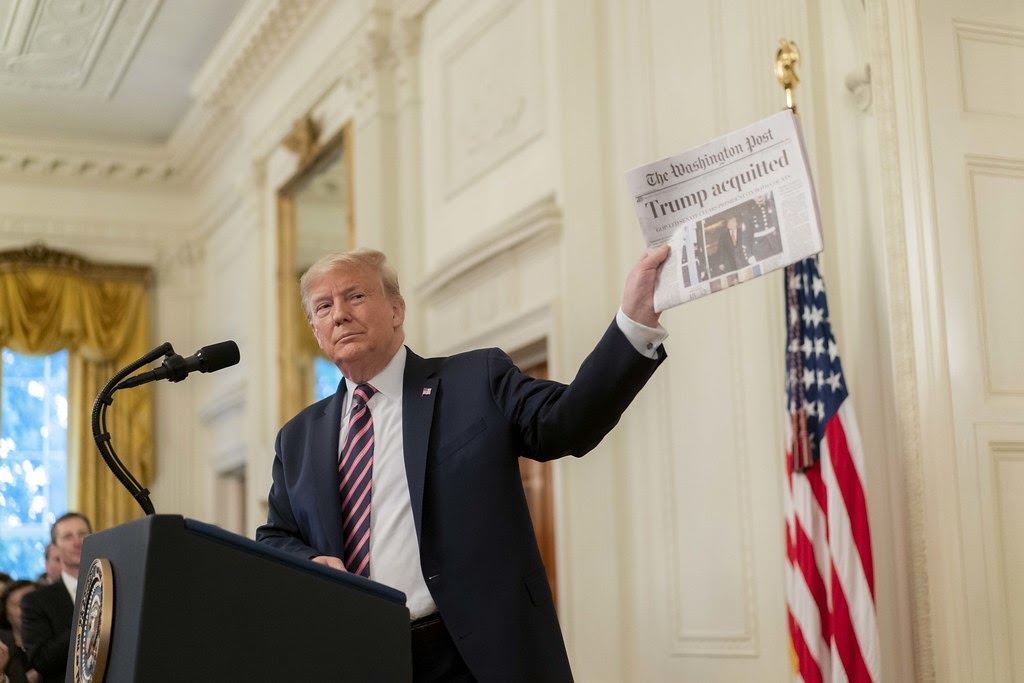I don’t remember when I became aware of the reality of the Holocaust. At some point, between heavily censored history books with veiled allusions to the fact, an unprecedented access to the Internet, and Zlata’s Diary, my presumably too-young mind was forced to grapple with the systematic murder of millions of people.
Millions. Numbers are strange for children. Being able to count to one hundred is a matter of pride, and the more zeroes you get to tack onto a figure, the more grown-up you feel. To that point, my brother and I had a game we used to play with my grandmother every summer that we spent in Karachi. It was silly and sweet in the usual way of children:
“I love you.”
“I love you more!”
“I love you to a hundred!”
“I love you to a thousand!”
“I love you to INFINITY!”
“I love you to infinity to the POWER of infinity!”
And the game would end with that. If infinity was the largest number conceivable to a six-year-old, then a million or two isn’t just a large sum, it’s a dangerously realistic number.
Up to six million?[1] That is harrowing, unconscionable in the deepest sense of the word.
So you learn very quickly that being a Nazi, a fascist, a supremacist, a terrorist of any kind is the worst type of human you could ever be. This was illustrated to me throughout my childhood by living in a country that saw terrorist attacks, assassinations, violence, and kidnappings fairly often. Rising death tolls, graphic images on the TV, the sound of sirens blaring past my school in Pakistan, standoffs between armed forces and insurgents, cold-blooded murders of public officials – existing became a traumatic experience in itself. When the numbers became too overwhelming to conceive, when murder took children as trophies, then as a country we would whisper to one another, “That is enough.”
While we in the East struggled with our daily fire-with-fire fights, the West had a mantra of its own billowing over the ashes of World War II into this 21st Century: “Never again.”
Never again would an entire generation brush off the discomfort of prejudice. Never again would politics become a game of appeasement. Never again would cities of love, lights, and finance be reduced to rubble in a war of ideology left to stew. Never again would identities be reduced to numbers. Never again would politeness be more important than destroying fascism. And never again would we bear the shame of denying victims of violence or seekers of opportunities refuge the way that entire countries – including the U.S. – denied Jews who sought asylum: including another fervent diarist, Anne Frank and her family.[2]
But the United States has had a history of picking and choosing what is American and what gets through its borders. After World War II ended, an entire era followed with Nazis as the baddest of the bad, the Boss Fight in innumerable instances of media. Indiana Jones punching out Nazis, Call of Duty: Black Ops with its famed – and stressful – game mode in which you take on hordes of Nazi Zombies, Brad Pitt in his iconic Tarantino scene calling for “one hundred Nazi scalps” – all became important elements of modernity itself. At the same time, an ideological scare of epic proportions began. McCarthyism turned into a domestic policy spurred by the Cold War; socialism – for better or for worse – became conflated with fascism on the basis of being un-American. This became a further basis of discrimination against individuals in the United States, with people deported, arrested, or otherwise investigated based on any un-American ties they may have had. And make no mistake, the term un-American and similar descriptions are not exaggerations.[3]
Then the tragedy of 9/11 took place. American lives were taken by terrorists, an attack on U.S. soil against U.S. actions abroad; an attack against the coexistence crafted between people of different religions, races, and ethnicities. Sometimes a tenuous coexistence, but a coexistence nonetheless. The terrorists, naturally, identified themselves as Muslims. Real Muslims blanched, and soon anyone who looked Muslim learned to blanch as well, as hate crimes suddenly spiked to the tune of 481 reported incidents in 2001 alone.[4] Even the broadly controversial George W. Bush called for unity in this time, attempting to provide a voice of reason and peace – a gesture that did not go unappreciated – saying “All Americans must recognize that the face of terror is not the true…face of Islam.”[5]
The hate crimes continued. They hovered around 100 a year, but they continued. Until 2015, when Donald Trump announced his candidacy for President of the United States and began his campaign of exploiting fear. We laughed it off around the world, but after 2015 became the first year that hate crimes against Muslims spiked since 2001, we began to blanch once more.[6] These crimes were almost definitely linked with the rise of Trump and associated rhetoric – but unlike George W. Bush’s graceful statement, Trump never took on the responsibility of denouncing those who would commit crimes in his name. All the while, violence around the world, producing largely Muslim victims, grew and grew.
According to the Global Peace Index, the 21st Century, for all its advances, has seen a breakdown in the general peacefulness of the world.[7] The Middle East and North Africa (MENA) region, home to some of the oldest civilizations known to us and the cradle of three major world religions, is the least peaceful region on earth, thanks in no small part to the archaic and, frankly, evil entity that calls itself the Islamic State. The refugee crisis that has emerged from this is the moral question of our generation. According to the United Nations High Commission on Refugees, the total number of refugees worldwide is 21.3 million, to say nothing of internally displaced peoples.[8]
But this article isn’t about the refugee crisis; it is about the reaction thereto, and the legitimization of exclusionary and extremist politics. The emergence of Donald Trump as the champion of the self-proclaimed victims of political correctness, and his subsequent victory and positioning as the Leader of the Free World, has forced a rebalancing of political opinions. This by itself is not terrible. Free speech is part and parcel of the United States – but the rise of the so-called alt-right and its politics of hate have bastardized what is best about the freedom of speech. Richard Spencer, of being decked in the face fame, has become the poster child of this.[9] Rather than condemning Spencer unequivocally for opinions including the formation of a “white ethnostate,” social media has seen a discussion on whether or not violence against fascists is in line with liberal values.[10] The issue is not that he is able to espouse genocide without being reprimanded by the government (which, constitutionally, is all that freedom of speech really encompasses). The issue is, apparently, that an individual chose to react to an incitement of violence with righteous, non-lethal, not even bloodletting violence – and that is where the outrage lies.
Let me be clear. Richard Spencer is a man who has led “Heil Hitler” chants and is banned from 27 European countries for his white nationalist beliefs.[11][12][13][14] But it is more important that his opinions be heard than it is to curb the trauma of peoples who have survived sustained, systematic attempts to cull or control them.
Never again.
Richard Spencer has the freedom to speak his mind. But if other Americans react with some degree of violence to inflammatory speech, it is their prerogative to do so. It may not be a legally protected right the way freedom of speech is, but it is the onus of the provocateur to understand the implications of their speech. And if a well-placed punch is a way to process trauma, perhaps “peaceful ethnic cleansing” wasn’t such a good idea to begin with. Alas, people like Richard Spencer are becoming notable political figures. Most notable, of course, is Stephen Bannon, Trump’s chief strategist and now an insider on the National Security Council in lieu of the Chairman of the Joint Chiefs of Staff and the Director of National Intelligence.
The Trump administration has held to campaign promises, as proven by the executive orders confirming construction of the now-infamous wall and pulling out of the Trans-Pacific Partnership, and by the executive order closest to my heart – the banning of immigrants, legal residents and otherwise, from seven (Muslim-majority) countries including Yemen, Iran, Iraq, Libya, Syria, Sudan, and Somalia. More recently in March, Trump tried again (with some more changes, such as the exclusion of Iraq), no more palatable morally than the first attempt. Both attempts have been, of course, purportedly in an attempt to reduce terrorism from the aforementioned countries and curb the threat of extremism in the United States.
I grew up in Pakistan, a country confronted by extremism and radicalization, from a combination of domestic ethnic cleavages and foreign intervention, which has radicalized already economically and socially disenfranchised people. This isn’t different from the way many American “homegrown” terrorists have been radicalized. The point is not to sympathize with terrorism. I have about as much patience for terrorist sympathizers as I do for Richard Spencer (and if I made my point clearly enough, it should be obvious that I have negative patience to those ends). But it is an indisputable fact that most radicalized Muslims in the United States have either found themselves tugged apart by competing identities instrumentalized by law enforcement or callous peers, or they have been victims of entrapment.[15] Instead of reducing terrorism, this discriminatory, exclusionary policy will likely stoke the embers of desperation that burst into wrath given the right kind of fanning.
But here’s my argument against Trump’s discriminatory executive orders: never again.
The images that have been coming out of airports around the United States since January have been harrowing. Young children separated from their mothers, detained simply for being of one of those six or seven nationalities; Muslims of all stripes reported that they found it significantly harder to enter the country regardless of citizenship; and the refugees, twice, thrice displaced, arriving in the United States with the light of Lady Liberty’s torch in their eyes, were told that they would be forced to go back – where?
Never again.
I hold my green, Pakistani passport with a mixture of pride and trepidation. I carry my two American visas knowing that they are a privilege, not a right. I live my days in camaraderie, and my nights in fear. What if Pakistan is placed on the list? I’m leaving for co-op in the Netherlands in July, but will I be able to come back to Boston – my home – for my final semester? Will I get to graduate from this university that my family has given, and given, and given to, for my continued attendance? Will I have to choose between my brother’s wedding and my diploma? I am not a refugee. There are people who will be hurt much worse than I ever will. But this is personal – an affront to every principle I was raised with, and an affront to many, many people I love, most of whom I do not and will never know.
Never again. We either stick to that principle or we admit the lie.
[1] “Documenting Numbers Of Victims Of The Holocaust And Nazi Persecution.” United States Holocaust Memorial Museum. https://www.ushmm.org/wlc/mobile/en/article.php?ModuleId=10008193.
[2] Izadi, Elahe. “Anne Frank And Her Family Were Also Denied Entry As Refugees To The U.S.” Washington Post. November 24, 2015. https://www.washingtonpost.com/news/worldviews/wp/2015/11/24/anne-frank-and-her-family-were-also-denied-entry-as-refugees-to-the-u-s/?utm_term=.496bf08e54f0.
[3] Storrs, Landon R. Y. “Mccarthyism And The Second Red Scare.” Oxford Research Encyclopedias. 2015. http://americanhistory.oxfordre.com/view/10.1093/acrefore/9780199329175.001.0001/acrefore-9780199329175-e-6.
[4] Ser, Kuang Keng Kuek. “Data: Hate Crimes Against Muslims Increased After 9/11.” Public Radio International. September 12, 2016. https://www.pri.org/stories/2016-09-12/data-hate-crimes-against-muslims-increased-after-911.
[5] “The President’s Quotes On Islam.” The White House Archives – George W. Bush. https://georgewbush-whitehouse.archives.gov/infocus/ramadan/islam.html.
[6] Lichtblau, Eric. “Hate Crimes Against American Muslims Most Since Post-9/11 Era.” The New York Times. September 18, 2016. https://www.nytimes.com/2016/09/18/us/politics/hate-crimes-american-muslims-rise.htmlmodule=ArrowsNav&contentCollection=Politics&action=keypress®ion=FixedLeft&pgtype=article&_r=0.
[7] “Global Peace Index.” Institute For Economics & Peace. 2016. http://162.243.170.40/#/page/indexes/global-peace-index.
[8] “Figures At A Glance.” United Nations High Commissioner For Refugees. 2016. http://www.unhcr.org/en-us/figures-at-a-glance.html.
[9] Murphy, Paul P. “White Nationalist Richard Spencer Punched During Interview”. CNN. January 20, 2017. http://www.cnn.com/2017/01/20/politics/white-nationalist-richard-spencer-punched/.
[10] Harkinson, Josh. “Meet The White Nationalist Trying To Ride The Trump Train To Lasting Power.” Mother Jones. October 27, 2016. http://www.motherjones.com/politics/2016/10/richard-spencer-trump-alt-right-white-nationalist.
[11] Graham, Chris. “Nazi Salutes And White Supremacism: Who Is Richard Spencer, The ‘Racist Academic’ Behind The ‘Alt Right’ Movement.” The Telegraph. November 22, 2016. http://www.telegraph.co.uk/news/0/richard-spencer-white-nationalist-leading-alt-right-movement/.
[12] Cox, John Woodrow. “‘Let’s Party Like It’s 1933’: Inside The Alt-Right World Of Richard Spencer.” Washington Post. November 22, 2016. https://www.washingtonpost.com/local/lets-party-like-its-1933-inside-the-disturbing-alt-right-world-of-richard-spencer/2016/11/22/cf81dc74-aff7-11e6-840f-e3ebab6bcdd3_story.html?utm_term=.353fa2d9c028.
[13] Appelbaum, Daniel. “‘Hail Trump!’: Video Of White Nationalists Cheering The President-Elect.” The Atlantic. November 21, 2016. https://www.theatlantic.com/politics/archive/2016/11/richard-spencer-speech-npi/508379.
[14] Krupkin, Taly. “Alt-Right Leader Has No Regrets About ‘Hail Trump,’ But Tells Haaretz: Jews Have Nothing To Fear.” Haaretz. December 3, 2016. http://www.haaretz.com/us-news/.premium-1.756645.
[15] “Illusion Of Justice: Human Rights Abuses In US Terrorism Prosecutions.” Human Rights Watch. 2014. https://www.hrw.org/sites/default/files/reports/usterrorism0714_ForUpload_0_0_0.pdf.



